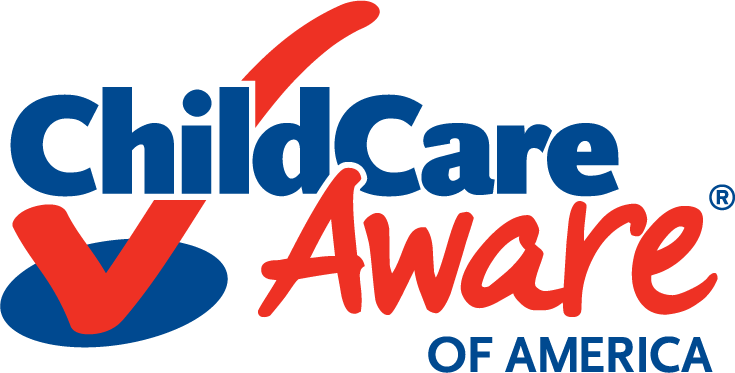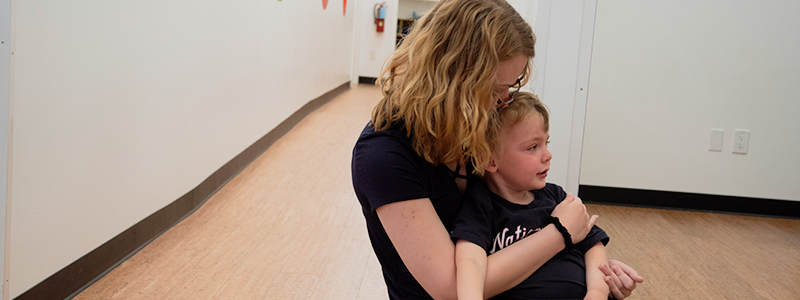 Most young children develop language rapidly, moving from crying and cooing in infancy to using hundreds of words and understanding their meanings by the time they are ready to enter kindergarten. Language development is a major accomplishment and is one of the most rewarding experiences for parents to share with their children.
Most young children develop language rapidly, moving from crying and cooing in infancy to using hundreds of words and understanding their meanings by the time they are ready to enter kindergarten. Language development is a major accomplishment and is one of the most rewarding experiences for parents to share with their children.
Children learn to speak and understand words by being around adults who communicate with them and encourage their efforts to talk. All children go through the same stages of language development, although each child will develop at his own pace. At every stage there are a number of things you can do to encourage your child and share in the experience together.
Language Begins In Infancy
Language development begins during the first few months of life as infants respond to the sounds around them. Parents soon recognize their baby's different cries for different needs. By three or four months of age, infants begin to make their own sounds known as “cooing.” Older infants begin to babble by repeating strings of syllables such as “babadoobeeba.” At about one year some infants can say a few recognizable words such as “dada” and “mama.”
Even at this early age, there is much that you can do to encourage your baby's language development. Start by talking to your baby as often as you can while you are feeding, bathing and diapering. Use your baby's name when you speak to her and make different expressions with your face. You can read books to your child too. Your child is listening to everything you say.
As your baby gets older and approaches his first birthday, he will begin to recognize some common words such as “juice” and “bye-bye.” You can play simple games such as peek-a-boo and counting toes. Continue to talk to him as much as possible and point out the names of objects. Add to his single word sentences. For example, when he says “dada,” your response can be “Yes, Daddy is home now.” Ask your caregiver or librarian about simple books to read to your child everyday.
When Language Takes Off
Between one and two years of age, your child can better understand what you say and ask for what he wants. She may use fragments of words and gestures but progress will come very quickly. Between two and three years of age, children go through a vocabulary explosion. They also begin to combine words into short phrases, follow simple directions, and hold longer conversations.
Use the events around you to expose your child to new opportunities for vocabulary. Take a walk and identify everyday objects in your neighborhood, talk about the trash truck you see, point out the vegetables at the grocery store. Invite your child to imitate your words and phrases. Continue to make sentences from your child's growing vocabulary so that he learns to put words together. Explore your local library together to find more books for daily reading.
Encouraging Language Through Easy Activities
There are easy activities you can do at home with your child to encourage language development and expand vocabulary.
- Put household objects in a box and have your child name each one as he removes it.
- Look at photo albums and name the people you see.
- Make basic books by cutting and gluing favorite pictures from old magazines.
- Sing simple songs such as Old MacDonald and leave words out for your child to fill in.
- Play easy games such as naming body parts, foods or articles of clothing.
- Put simple storybooks in a basket for you and your child to choose from every day.
Conversations With Preschoolers
Preschoolers use language correctly more often as they master increasingly difficult words and sentences. Their language is more relaxed and chatty and not only directed towards immediate needs.
At this age, your child will enjoy playing with words with you and giggling over silly rhymes and stories. You can share in her silliness and make up some of your own. "The blue shoe is for you," or "Is it raining applesauce today?"
Expand on your child's skills and make your requests more difficult. Give him directions with 2 or 3 parts. Ask him to explain how he has built his tower or what is happening in the picture he drew. Show him the differences between similar objects such as rough and smooth, small and large, fast and slow.
Your child will also begin to write letters of the alphabet and stories to share with you. Continue your visits to the library for books that interest both of you. Provide writing materials and a place for her to safely do her "work." Her language will flourish as you provide a home that is rich in conversation and encourages her to experiment.
When To Be Concerned
Although every child goes through the same stages of language development, every child is unique and progresses at her own rate. One child might say her first words at eight months and another may not speak until age two. Some toddlers have dozens of words in their vocabularies and others have just a few.
Many factors affect how and when a child develops language. Sometimes language development slows down while other skills such as standing or walking are being learned or by how a child's parents and others respond to him.
Although you should respect individual differences in language development, sometimes there are concerns about what is normal. If you have to repeat a lot or have to speak loudly to get your child's attention, you may want to get your child's hearing tested. Talk to your family members and your child's caregiver to see what they have noticed. Don't wait if you suspect there is a problem. You may want to call your child's pediatrician or visit the clinic if you are not sure. Remember, you and your family know your child best.
Tips For Parents
Here are some easy guidelines you can use to encourage your child's language development:
- Use simple sentences and pause between sentences.
- Speak slowly and clearly.
- Build on your child's topic or interest.
- Talk naturally to your child about what he is doing and what he sees.
- Take the time to listen to your child. Respond with praise so she knows you have been listening.
- Encourage, but don't push, your child to talk. Everyone develops at their own pace.
Resources
- Reading Is Fundamental is a place where children and families can come together to explore the world of books.
- Reading Rockets has resources and information for parents about emerging literacy and a parent's role as their child's first teacher.
- American Speech-Language-Hearing Association provides developmental milestones and skills within an age range.
The Daily Parent is prepared by NACCRRA, the National Association of Child Care Resource and Referral Agencies.
© 2012 NACCRRA. All rights reserved.



